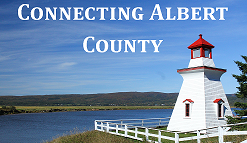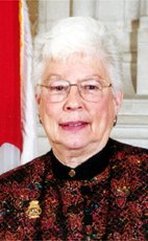 Democracy Watch Logo
Democracy Watch Logo called Democracy Watch was going to
sue the New Brunswick government over
its decision to call an early election back in
September. Now, suing anyone is risky but
more so when that organization has
limitless funds to mount a defence. So if
nothing else I commend their bravery.
Sadly, the bravery has a truckload of foolishness mixed in.
Brunswick's fixed-date election law (which sets the date the
next election will fall on), and the constitution, the way you
want it to read rather than how it is actually written. James
Bowden over at Parliamentum has already made several
excellent posts about the structural problems of Canada's
fixed-date election laws so I will not get into them in depth
here.
The Democracy Watch press release announcing this legal
action is an interesting read mostly because it aims to have
the courts rule on two things they don't rule on: conventions
and politics. They argue that because the last three elections
have occurred on the fixed-date that a convention has been
established. I won't even dispute this point; a convention of
having elections on a set date may well have been established
but this still doesn't make conventions something
courts can rule on. The second aspect of their argument is
that calling an early election was self-interested and contrary
to previous political positions. Now, courts don't rule on
conventions and they definitely don't rule on political
positions. There is an amusing irony in that if Democracy
Watch gets its way the unelected courts will become referees
of government policy. Why is this an irony? Because they also
want the current referees of government policy (the monarch
and their representatives) to be elected.
Although, either because of the many constitutional hurdles
involved or a secret preference for oligarchy, they don't
actually call for elected governor generals:
"Democracy Watch recommends that the GG be chosen by creating a new federal
Cabinet appointments agency made up of 5 people chosen with the approval of all
federal political party leaders that have members in the House of Commons; then
having that agency do a public, advertised, merit-based search to come up with a
shortlist of 3 qualified candidates for GG (this agency will also do searches for
candidates for all other federal Cabinet appointments); and then having a
convention attended by the leaders of every party that has members in any federal,
provincial or territorial legislature, and with the GG approved by two-thirds of the
leaders. This will result in a representative, non-partisan, qualified GG being
chosen every time."
every step the smallest elite has authority. Search committee?
Selected by the party leaders. Convention to select the new
governor general? Party leaders from across Canada. I also
have doubts about their conclusion that the resulting pick
would be non-partisan. Election is not a system that tends to
select for non-partisanship. Those leaders doing the voting
have every interest to have someone sympathetic to their
interests get the nod. Finally, it diffuses responsibility for the
appointment. At present, the prime minister has a vested
interest in making sure their pick isn't an embarrassment.
By spreading the blame for any poor choices of governor
general around a wider group the prime minister loses any
sense of personal responsibility in making sure the office of
the governor general is functioning properly.
The idea of having a select group choose candidates to
recommend is not a bad idea in and of itself. I have
mentioned the Advisory Committee on Vice-Regal
Appointments before and I feel it was an improvement.
So Democracy Watch does have some good ideas, such as
increasing the power of auditors general, but the good ideas
are buried under layers of poorly-thought-out initiatives, of
which messing with the Crown is only one. It can do better.
Loyally Yours,
A Kisaragi Colour
 RSS Feed
RSS Feed





